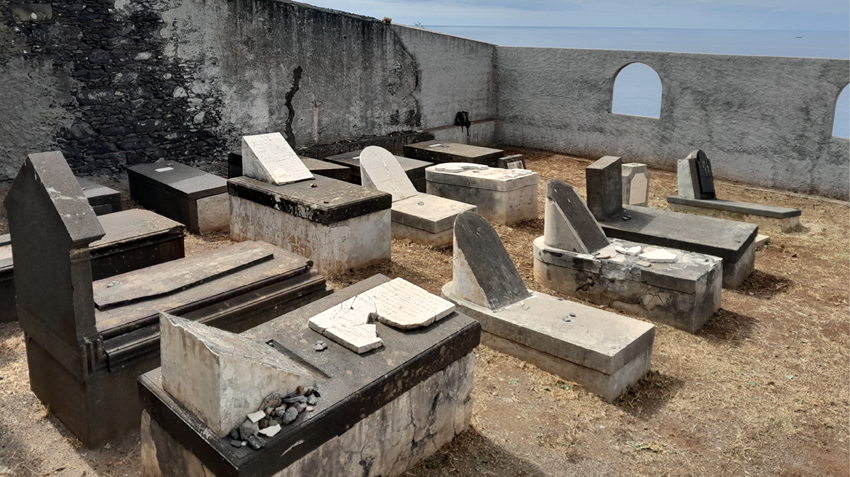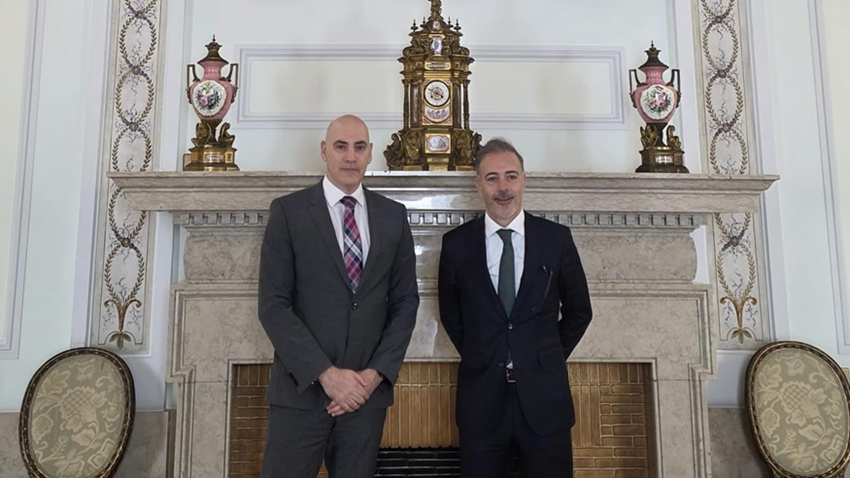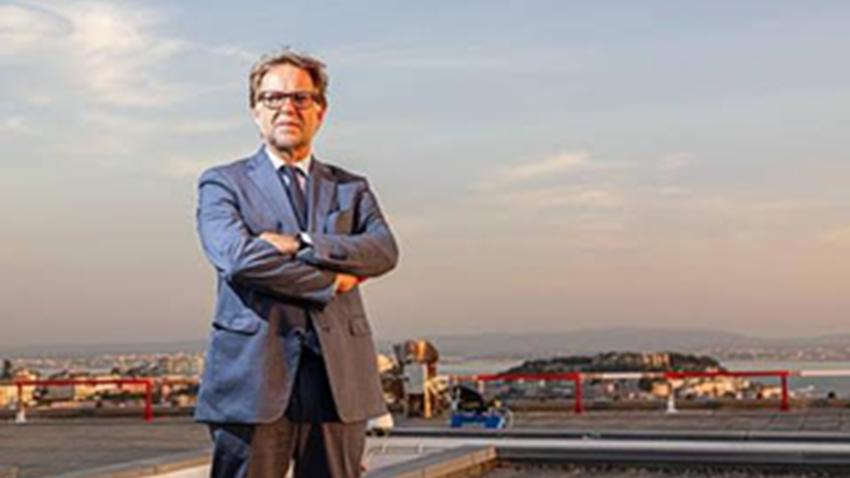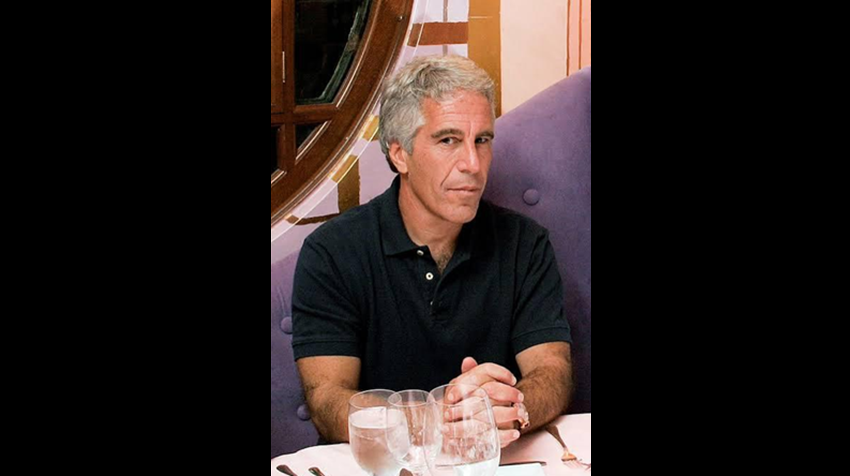Credit: The Jewish Cemetery of Funchal
The Lisbon Jewish Community (CIL) has launched a digital platform that organizes and provides information about the graves in various Jewish cemeteries across Portugal. The project, called Memorial Milucha and Moisés (MMM), honors Emília (Milucha) and Moisés Ettner for their lifelong contributions to the Lisbon community.
The platform brings together data from the main Jewish Cemetery of Lisbon, the Estrela Jewish Cemetery, and cemeteries in Faro, Funchal, Ponta Delgada, and Horta. According to CIL, the information was mainly obtained from death registers archived by the respective communities and directly from the graves, many of which are in poor condition, with Hebrew inscriptions that are difficult to read or have been worn away over time.
Currently, the platform contains 2,248 records and is continuously updated, with the community contributing to data entry and corrections. Accessing the information requires registration on the platform.
The project represents an important step in preserving the memory and history of the Jewish community in Portugal, facilitating genealogical research and the study of the country’s Jewish cultural heritage.
ABOUT THE CEMETERIES
Estrela Jewish Cemetery, Lisbon
Located next to the English Cemetery of Estrela, this small plot was acquired in 1801 by Jewish families returning to Portugal after generations in Morocco and Gibraltar. The first recorded burial was José Amzalaga in February 1804. The cemetery was in use until 1869, when the community established the Main Jewish Cemetery of Lisbon.
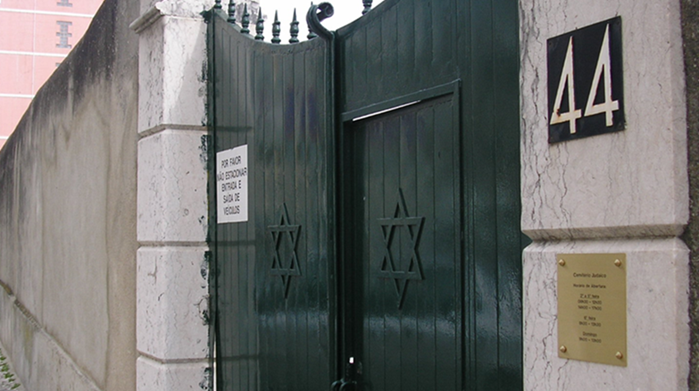
The Main Jewish Cemetery of Lisbon, Credit: CIL
Main Jewish Cemetery of Lisbon
In operation since 1868, thanks to a royal charter from King Luís authorizing Lisbon’s Jews to create their own cemetery, it remains the principal cemetery of the Lisbon Jewish Community. The site also contains tombstones of former members of the Porto Jewish Community, who became members of the Lisbon Community to be buried there due to the absence of a local cemetery at that time.
Faro Jewish Cemetery
The land for Faro’s Jewish cemetery was purchased in 1851, although the gate indicates 1887. It ceased to be used in 1932, when the local Jewish community dissolved, except for the burial of Ralf Pinto in 2011, a tireless restorer of the cemetery. Besides the graves, there is a small building of the former Tehará (where bodies were washed and dressed) now transformed into a small museum.
Funchal Jewish Cemetery
The Funchal cemetery was established in 1850 and inaugurated the following year. The local Jewish community grew during World War II due to the evacuation of Gibraltar’s civilian population. Between 1854 and 1976, 38 people were buried there. After decades of neglect, ruin, and vandalism, the cemetery was restored in 2015 with funding from the European Committee for the Protection of Jewish Cemeteries.
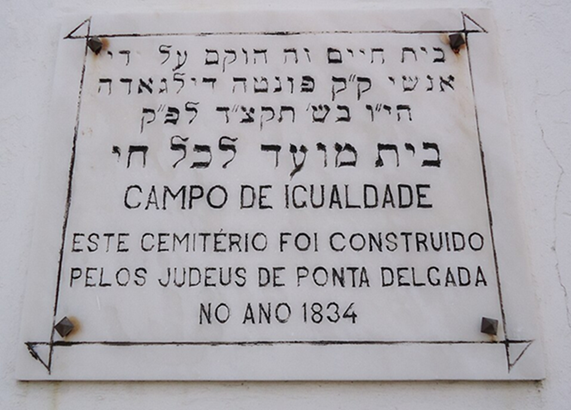
The Ponta Delgada Jewish Cemetery. Credit: Carlos Luis M C da Cruz (Wikipedia)
Ponta Delgada Jewish Cemetery
Officially created in 1834, as recorded in the City Council’s property deeds, the cemetery had already been in use earlier, as indicated by a tombstone from 1826 for Jacob Bensaude. It contains around 160 graves, arranged irregularly without chronological or family grouping. The Bensaúde family led efforts to clean and restore the site.
Horta Jewish Cemetery
Located in the city of Horta on Faial Island, next to the general cemetery, it contains the graves of 17 Jews. In May 1851, Queen Maria II authorized the cemetery to serve the local Jewish community. Used for 80 years, it remains the largest testimony to the Jewish presence that once existed on Faial.































